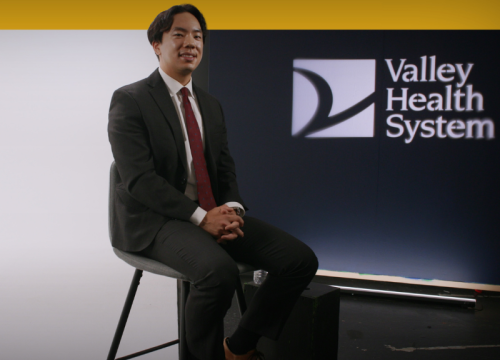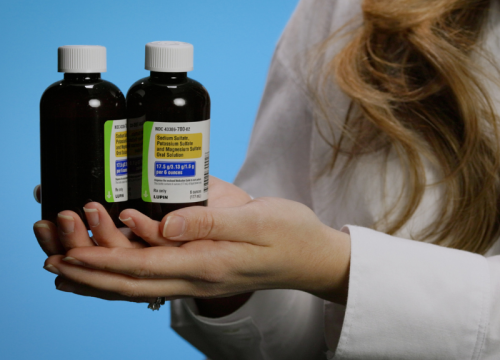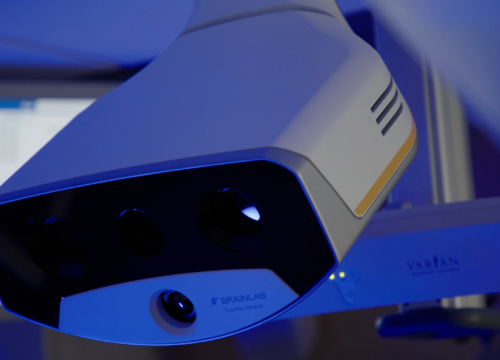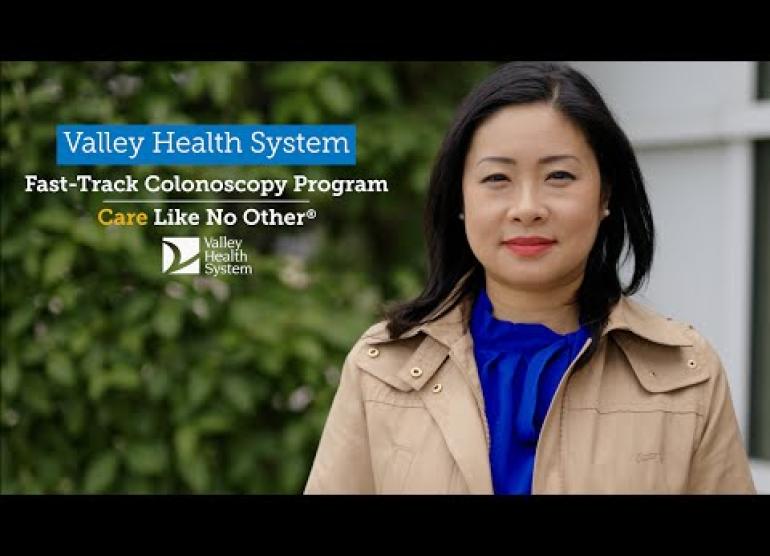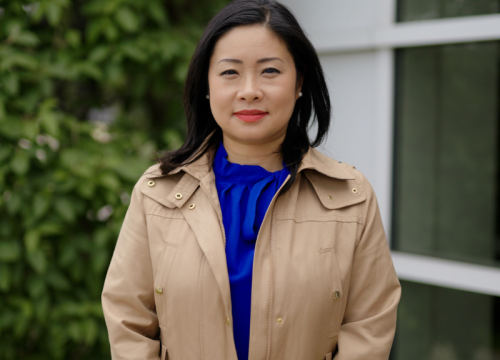At Valley-Mount Sinai Comprehensive Cancer Care we offer the latest innovative treatments while caring for the whole person. That is why we offer scalp cooling for patients with solid cancer tumors receiving chemotherapeutic drugs that may lead to hair loss.
The following information is provided by Paxman, our partner in this program.
What is Scalp Cooling?
Scalp cooling is a simple treatment that can help prevent hair loss caused by chemotherapy, also known as chemotherapy-induced alopecia. Not all chemo drugs cause hair loss, but for those that do, scalp cooling is an effective solution.
How Does Scalp Cooling Work?
By cooling the scalp, the blood flow to the area is reduced by 40 percent, meaning that less blood containing the chemotherapy drugs reaches the hair follicles. The cooling also causes the cells in the hair follicles to become dormant, meaning that they no longer rapidly divide. Therefore, any chemotherapy that does reach the follicles, bypass the cells.
The scalp is reduced in temperature to between 68- and 72-degrees Fahrenheit. The result minimizes hair loss and protects the hair follicles.
*You must cold cap at every chemotherapy session to see the benefits of hair retention and the protection of follicles.
Who Is a Candidate for Scalp Cooling?
Scalp cooling can be used by people with solid cancer tumors receiving alopecia-inducing chemotherapy drugs.
Scalp cooling is contradicted in pediatric patients and patients with the following:
- Cancers of the head and neck
- Cold sensitivity, cold agglutinin disease, cryoglobulinemia, cyrofibrinogenemia, cold migraine, cold urticaria, and post-traumatic cold dystrophy
- Hematological malignancies (leukemia and lymphomas)
- Skin cancers (including melanoma, squamous cell carcinoma, and Merkel cell carcinoma)
- Small cell carcinoma of the lung
Side Effects of Scalp Cooling
Known side effects include chills, dizziness, headache, nausea, paresthesia (an abnormal sensation such as tingling, pins and needles, or prickling of the skin), sinus pain, and skin ulceration.
All these side effects are temporary or transient in duration and are recognized as presenting a low risk of harm.
How Effective is Scalp Cooling?
Results can vary and it is dependent on multiple factors including chemotherapy regimen, dose, duration of drug infusion, cap fit, and chemotherapy drug metabolism.
Everyone responds differently to scalp cooling.
For more detailed information about the Paxman scalp cooling system, click here.
To find out if scalp cooling is right for you, please speak to your oncologist.





